Related Research Articles

Kraftwerk are a German electronic band formed in Düsseldorf in 1970 by Ralf Hütter and Florian Schneider. Widely considered innovators and pioneers of electronic music, Kraftwerk were among the first successful acts to popularize the genre. The group began as part of West Germany's experimental krautrock scene in the early 1970s before fully embracing electronic instrumentation, including synthesizers, drum machines, and vocoders. Wolfgang Flür joined the band in 1973 and Karl Bartos in 1975, expanding the band to a quartet. Since the band's formation, it has seen numerous lineup changes, with Hütter as its only constant member.

New Order are an English rock band formed in 1980 by vocalist and guitarist Bernard Sumner, bassist Peter Hook, and drummer Stephen Morris. The members regrouped after the disbandment of their previous band Joy Division due to the suicide of lead singer Ian Curtis. They were joined by Gillian Gilbert on keyboards later that year. New Order's integration of post-punk with electronic and dance music made them one of the most acclaimed and influential bands of the 1980s. They were the flagship band for Manchester-based independent record label Factory Records and its nightclub The Haçienda, and they worked in long-term collaboration with graphic designer Peter Saville.

Berlin is an American new wave band formed in Los Angeles in 1978. The band gained commercial success in the 1980s with singles including "The Metro", "Sex ", "No More Words" and the chart-topping "Take My Breath Away" from the 1986 film Top Gun, which won the Academy Award for Best Original Song and a Golden Globe Award for Best Original Song. The group disbanded right after reaching global success. The best-known lineup consisted of singer Terri Nunn, bass guitarist and vocalist John Crawford, keyboardist David Diamond, guitarist Ric Olsen, keyboardist Matt Reid, and drummer Rob Brill.

Simple Minds are a Scottish rock band formed in Glasgow in 1977. They have released a string of hit singles, becoming best known internationally for "Don't You " (1985), which topped the Billboard Hot 100 in the United States. Other commercially successful singles include "Promised You a Miracle" (1982), "Glittering Prize" (1982), "Someone Somewhere in Summertime" (1982), "Waterfront" (1983), "Alive and Kicking" (1985), "Sanctify Yourself" (1986), "Let There Be Love" (1991), "See the Lights" (1991) as well as the UK number one single "Belfast Child" (1989).
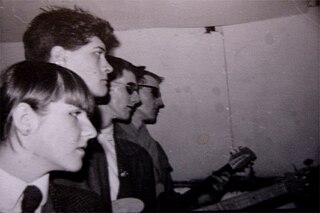
Young Marble Giants were a Welsh post-punk band formed in Cardiff, Wales, in 1978. Their music was based around the vocals of Alison Statton along with the minimalist instrumentation of brothers Philip and Stuart Moxham. Their early sound was a sharp contrast with the more aggressive punk rock that dominated the underground at the time. Young Marble Giants released just one studio album, Colossal Youth, in 1980. They also released two EPs and recorded a John Peel session.

Tour de France Soundtracks is the eleventh studio album by German electronic music band Kraftwerk. It was first released on 4 August 2003, through Kling Klang and EMI in Europe and Astralwerks in North America. The album was recorded for the 100th anniversary of the first Tour de France bicycle race, although it missed its intended release date for the actual tour. It includes a new recording of their 1983 song of the same name, the cover artwork of both releases being nearly identical. The announcement of the release caused much anticipation, as it had been 17 years since the group had put out a full album of new studio material. It is also the last studio album to feature Florian Schneider before his departure from the band in 2008 and his death on 21 April 2020.

The Man-Machine is the seventh studio album by German electronic music band Kraftwerk. It was released on May 1978 by Kling Klang in Germany and by Capitol Records elsewhere. A further refinement of their mechanical style, the album saw the group incorporate more danceable rhythms. The album has a satirical bent to it. It is thought to address a wide-range of themes from the Cold War, Germany's fascination with manufacturing, and humankind's increasingly symbiotic relationship with machines. It includes the singles "The Model" and "The Robots".
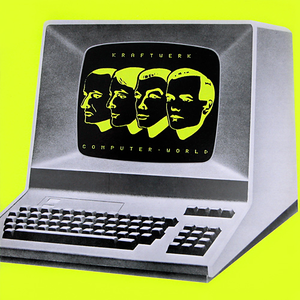
Computer World is the eighth studio album by German electronic band Kraftwerk, released on 11 May 1981. It was accompanied by four singles, including a double A-side UK no. 1 featuring "Computer Love."
Angelic Upstarts are an English punk rock / Oi! band formed in South Shields in 1977. AllMusic calls them "one of the period's most politically charged and thought-provoking groups". The band espouse an anti-fascist and socialist working class philosophy, and have been associated with the punk and skinhead subcultures.
Cybotron is an American electro music group formed in 1980 by Juan Atkins and Richard "3070" Davis in Detroit. Cybotron had a number of singles now considered classics and style-defining works of the electro genre, particularly "Clear" and the group's debut, "Alleys of Your Mind", as well as "Cosmic Cars" and "R-9".
Fashion was a British new wave band, primarily active from 1978 to 1984, with a brief revival in 2009. They began as a post-punk band, before developing into a new wave/synth-pop ensemble that placed three singles on the lower reaches of the UK chart in 1982–84.
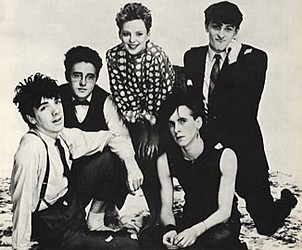
Altered Images are a Scottish new wave/post-punk band who found success in the early 1980s. Fronted by singer Clare Grogan, the group branched into mainstream pop music, having six UK top-40 hit singles and three top-30 albums from 1981 to 1983. Their hits include "Happy Birthday", "I Could Be Happy", "See Those Eyes", and "Don't Talk to Me About Love".
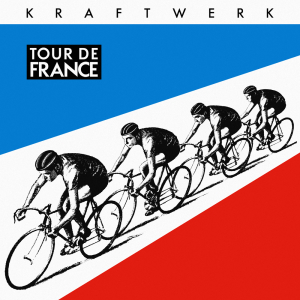
"Tour de France" is a song by German electronic band Kraftwerk. It was first issued in early August 1983, peaking at number 22 in the United Kingdom singles chart on 6 August.
Endgames were a Scottish pop band active during the 1980s. They released two albums on Virgin Records, but failed to achieve significant commercial success.
The Manikins were an Australian punk rock and new wave band from Perth, Western Australia.

"Being Boiled" is the debut single by the British synthpop band the Human League. Composed by Martyn Ware and Ian Craig Marsh, with lyrics by Philip Oakey, it has been released several times since 1978, finally becoming a UK top ten hit in 1982.
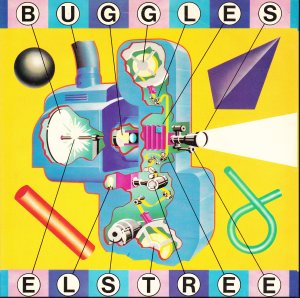
"Elstree" is a song by the Buggles from their debut album, The Age of Plastic. It was the fourth and final single from the album, released on 27 October 1980. It was written by Trevor Horn and Geoff Downes.

"Clean, Clean" is a song composed by Trevor Horn, Geoff Downes and Bruce Woolley. It was recorded first by the latter for his band Bruce Woolley and the Camera Club in 1979, and later by the former two as the Buggles for their debut album The Age of Plastic. It was released as the album's third single on 24 March 1980.

Futurisk (stylized as FUTURISK) was an American electronic electropunk group based out of Lighthouse Point, Florida, United States that recorded and performed live in the late 1970s and early 1980s in South Florida, and are believed to be the first electropop/electropunk band in the American South.

Naked Lunch are an English band formed in 1979, by Tony Mayo who advertised for like-minded people in the Melody Maker. Mick Clarke replied and they then moved into a flat to work on further material. In preparation to play live further members were advertised for and Tim Yorke, Paul Nicholas Davies and Cliff Chapman joined and then, in 1981, by Mark Irving who replaced Yorke.
References
- ↑ TheWhitevision (21 February 2014). "Berlin Blondes – Funtime (Live)" – via YouTube.
- ↑ TheWhitevision (21 February 2014). "Berlin Blondes -The Model (Live)" – via YouTube.
- 1 2 "Berlin Blondes – Berlin Blondes (Vinyl, LP, Album) at Discogs". discogs. 1980. Retrieved 28 July 2016.
- ↑ "Endgames". Archived from the original on 7 May 2010. Retrieved 8 September 2011.
- ↑ "Berlin Blondes – Fade 2 Grey". fade2grey.com.
- ↑ Berlin Blondes (Ira Robbins, Trouser Press )
- ↑ "Magazine clipping. The Berlin Blondes". oocities.org. Retrieved 28 February 2024.
- 1 2 Berlin Blondes (Louisa Hennessey, ZigZag July 1981, p26)
- ↑ "Design Focus: Rock Lobster". DRAM Scotland. 30 November 2012.
- ↑ "About : WORLD OF FOUND". worldoffound.com. Archived from the original on 23 August 2018. Retrieved 30 June 2020.
- ↑ "Berlin Blondes – Science (Vinyl) at Discogs". discogs. 1980. Retrieved 28 July 2016.
- ↑ "Berlin Blondes – Framework (Vinyl) at Discogs". discogs. 1980. Retrieved 28 July 2016.
- ↑ "Berlin Blondes – Framework (Vinyl) at Discogs". discogs. 1980. Retrieved 28 July 2016.
- ↑ "Berlin Blondes – Marseille (Vinyl) at Discogs". discogs. 1981. Retrieved 28 July 2016.